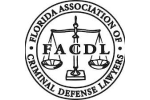to Save Yours
Violation of Federal of Probation or Supervised Release
Knowledgeable Tampa Criminal Defense Lawyers Aggressively Defending Clients Facing Federal VOPs
Facing a violation of federal probation or supervised release can have serious consequences, including potential imprisonment. If you’ve been accused of violating the conditions of your federal probation or supervised release, it’s crucial to act quickly and secure experienced legal representation. The Mayberry Law Firm is dedicated to defending clients facing federal VOPs. We provide personalized and strategic representation designed to protect your rights at every stage of the process. We’ll work tirelessly to help minimize the impact of a violation and guide you through the legal process every step of the way. Don’t wait—contact the Mayberry Law Firm today to discuss your options.
The Basics of Federal Probation
If you’ve been convicted of a federal crime, you were most likely sentenced to a term of imprisonment with a period of federal probation to follow. In this case, supervised release is monitored by federal probation, starting with your release from prison. Depending upon the classification of the felony, you will serve a term of federal supervised release, typically between one year and five years.
As with any probation sentence or term of supervised release, your every move will be scrutinized. Given this reality, the opportunity for a violation of probation (VOP) or violation of supervised release is ever-present. And, when the government claims you violated your probation or supervised release, it’s imperative that you have a federal violation of probation lawyer in your corner. In fact, in some of our client’s cases, our Tampa federal VOP attorney has been able to convince the federal probation officer not to report the violation.
How Does a Violation of Federal Probation or Violation of Federal Supervised Release Work?
A federal VOP can come up in two different ways. First, it’s a violation to commit a crime while on federal probation or supervised release. Second, it’s considered a technical violation of probation or supervised release if you violate (or fail to comply with) any term of your probation. In either case, the violation gives the sentencing judge the opportunity to determine the sentence, which is based on the severity of the violation.
In the federal system, violations are broken up into three grades:
Grade A Violations – Grade A Violations involve actions that could result in over a year of imprisonment under federal, state, or local law. They typically include (i) violent crimes, (ii) offenses related to controlled substances, or (iii) cases involving the possession of firearms or destructive devices as outlined in 26 U.S.C. § 5845(a). Alternatively, it can refer to any other federal, state, or local crime that carries a sentence of over 20 years.
Grade B Violations – Grade B Violations include offenses under federal, state, or local laws that are punishable by more than one year of imprisonment (i.e., felonies) but do not fall under the more severe Grade A category.
Grade C Violations – These involve either (A) offenses punishable by one year or less of imprisonment under federal, state, or local laws (i.e., misdemeanors) or (B) any breach of the conditions set forth in an individual’s supervision order (a technical violation).
If you’re facing a Grade C violation, your federal probation attorney may be able to convince your probation officer to keep the violation “in-house,” which means they will not report it to the judge. Typically, this opportunity arises if the violation was not part of a continuing pattern and doesn’t indicate that you are a risk to the public. However, with Grade A and B violations, the probation officer has a duty to report the violations to the judge.
With Grade A and Grade B violations, the Court must first make a finding whether the violations occurred. If the judge determines you violated probation, then your probation must be revoked, and you will face a term of incarceration based on the grade of violation and your criminal history.
Speak With an Experienced Tampa Federal Probation Attorney Today
Any alleged violation of federal probation is serious. If you’ve been accused of violating federal probation or supervised release, the Mayberry Law Firm can help you minimize the impact the alleged violation has on your life. Attorney Jason Mayberry commands an impressive understanding of the federal system and knows what it takes to ensure your interests are protected at every stage of the process. Contact the Mayberry Law Firm today for a free consultation to see if we can avoid the judge revoking your probation. To learn more and to schedule a free consultation, give the Mayberry Law Firm a call at 813-444-7435. You can also connect with us through our secure online contact form.














